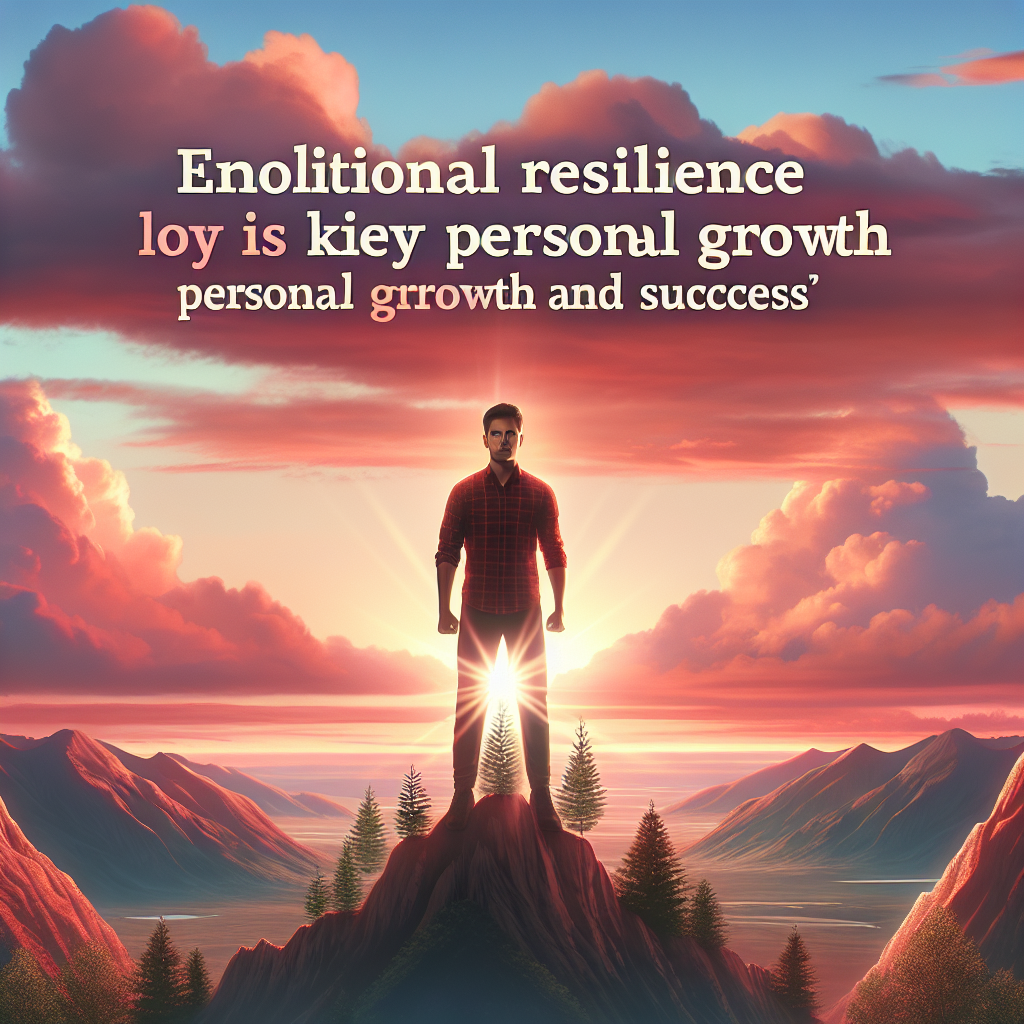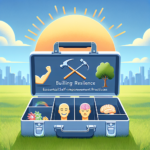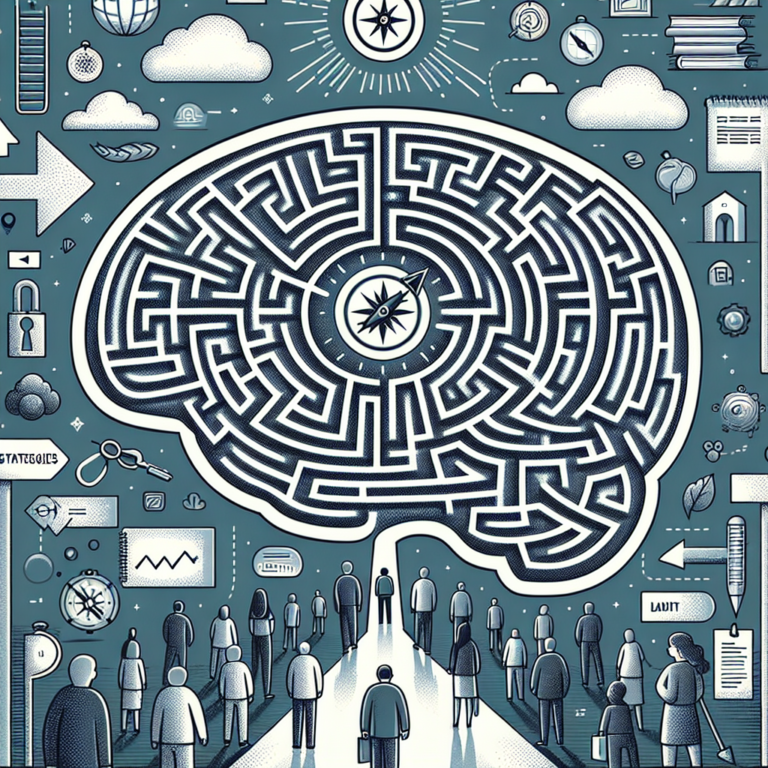
Introduction
In an ever-changing world marked by uncertainties, emotional resilience has emerged as a cornerstone of personal growth and success. Imagine facing life’s challenges with the strength to bounce back, adapt, and thrive. Whether it’s navigating a career setback or dealing with personal loss, emotional resilience empowers individuals to continue moving forward vigorously. But why is emotional resilience key to personal growth and success?
In this article, we will delve into the profound impact of emotional resilience on personal development, providing unique insights, compelling case studies, and actionable strategies for cultivating this essential skill.
Understanding Emotional Resilience
What is Emotional Resilience?
Emotional resilience is the ability to adapt to stress, adversity, trauma, or tragedy. It doesn’t mean avoiding or suppressing feelings but rather understanding, processing, and navigating them effectively. Resilient individuals acknowledge their emotions, allowing themselves to experience the full range of human emotions while maintaining control over their reactions.
Why is Emotional Resilience Key to Personal Growth and Success?
Emotional resilience serves as a buffer against the inevitable challenges life throws our way. Here’s why:
- Improved Coping Mechanisms: Resilient individuals are adept at managing stress and overcoming setbacks, translating into enhanced problem-solving abilities.
- Greater Emotional Intelligence: Understanding and regulating one’s emotions enhances interpersonal relationships, essential for both personal and professional success.
- Stronger Social Connections: Resilient individuals often have robust support networks, crucial for emotional well-being and personal growth.
- Proactive Mindset: A resilient mindset encourages individuals to view challenges as opportunities rather than roadblocks, fostering innovation and growth.
The Science Behind Emotional Resilience
The Psychological Framework
Research indicates that emotional resilience is influenced by both biological factors (such as brain chemistry) and learned behaviors (like coping strategies). According to the American Psychological Association, resilience involves behaviors, thoughts, and actions that can be learned and developed in anyone.
Table: Key Components of Emotional Resilience
| Component | Description |
|---|---|
| Self-awareness | Understanding one’s emotions and triggers |
| Self-regulation | Managing reactions to stress |
| Optimism | Maintaining a positive outlook |
| Social Support | Building and utilizing a support network |
| Problem-Solving Skills | Finding solutions in the face of adversity |
Real-World Applications: Case Studies
Case Study 1: J.K. Rowling
Before her meteoric rise to fame, J.K. Rowling faced rejection from multiple publishers, personal hardship, and financial struggles. Instead of giving up, she utilized her emotional resilience to persevere, leading to the creation of the Harry Potter franchise, which became a global phenomenon. This exemplifies why emotional resilience is key to personal growth and success; it can transform setbacks into stepping stones.
Analysis
Rowling’s story illustrates that emotional resilience fosters persistence and creativity, pivotal traits for achieving success. By reframing obstacles as opportunities, she not only endured but thrived.
Case Study 2: Oprah Winfrey
Oprah Winfrey is another example of emotional resilience at work. Overcoming a tumultuous childhood filled with abuse and adversity, she channelled her experiences into her career. Her resilience allowed her to connect with audiences personally and deeply, propelling her to iconic status in media.
Analysis
Winfrey’s method of using her struggles as fuel showcases why emotional resilience is key to personal growth and success. She turned pain into purpose, inspiring millions along the way.
Cultivating Emotional Resilience
Strategies for Building Resilience
Practice Self-Care: Physical health contributes to emotional well-being. Regular exercise, a balanced diet, and adequate sleep form the basis of emotional resilience.
Develop a Support Network: Surround yourself with supportive individuals who can offer guidance and encouragement during tough times.
Foster a Growth Mindset: Embrace challenges as opportunities to learn instead of seeing them as insurmountable barriers.
Stay Mindful: Mindfulness techniques, like meditation or deep breathing exercises, can help in processing emotions and reducing stress.
- Seek Help When Needed: Don’t hesitate to seek professional help to develop coping strategies and enhance resilience.
Table: Resilience-Building Activities
| Activity | Benefits |
|---|---|
| Meditation | Reduces stress and increases self-awareness |
| Physical Exercise | Boosts mood through endorphins |
| Creative Outlets | Provides emotional release and expression |
| Journaling | Encourages reflection and cognitive processing |
Emotional Resilience in Professional Life
The Workplace Advantage
In professional settings, emotional resilience is increasingly recognized as key to success. Teams led by resilient leaders typically have higher morale and productivity levels.
Example: A sales team facing heavy competition benefits tremendously when they cultivate resilience. In high-pressure situations, resilient team members are more likely to retain focus, maintain a positive outlook, and encourage one another, facilitating not only team cohesion but also success.
Table: Emotional Resilience in the Workplace
| Aspect | Resilient Organizations | Less Resilient Organizations |
|---|---|---|
| Adaptability to Change | Embraces change as an opportunity | Resists change, leading to stagnation |
| Employee Well-being | High morale, low turnover | Low morale, high turnover |
| Conflict Resolution | Effective and constructive | Avoidance or escalation of conflicts |
Conclusion
Understanding why emotional resilience is key to personal growth and success can radically change how we approach life’s challenges. By cultivating emotional resilience, we don’t just prepare ourselves to face difficulties; we thrive in spite of them.
Actionable Insights
- Start small: Integrate practices like journaling or mindfulness into your daily routine.
- Connect: Prioritize building genuine relationships that can serve as anchors during tough times.
- Embrace setbacks: View them as learning opportunities, adapting your approach for future challenges.
Final Motivational Takeaway
Every setback is a setup for a comeback. By enhancing emotional resilience, you equip yourself with the tools necessary for personal growth and astounding success. Life will always present its challenges, but with emotional resilience, you can navigate them with grace and optimism.
FAQs
1. What are some signs of emotional resilience?
Signs of emotional resilience include effective coping strategies, adaptability to change, maintaining a positive outlook, and strong relationships.
2. Can emotional resilience be developed over time?
Absolutely! Emotional resilience can be cultivated through practice, self-awareness, and adopting strategies that support emotional well-being.
3. How does mindfulness contribute to emotional resilience?
Mindfulness helps individuals manage stress and improves emotional awareness, allowing for better emotional regulation and understanding.
4. Why is social support important for resilience?
A strong support network provides resources, emotional comfort, and shared experiences, which are essential for enduring tough times.
5. What role does self-care play in emotional resilience?
Self-care fosters physical and emotional health, providing the foundation essential for developing resilience against life’s challenges.
By understanding and implementing these strategies, you’ll not only embrace the idea of why emotional resilience is key to personal growth and success but also embody it in your everyday life.















